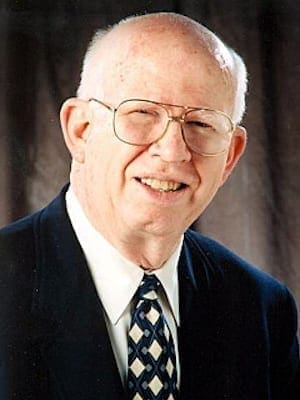I grew up in a small cotton mill village in upper South Carolina during the last years of the Great Depression. Churches and schools were the town’s foundation. I was fortunate to have teachers who were not only skilled and caring academics, but who lived Christian lives before us.
I never had any reason to believe that my teachers did not care about me as an individual; in fact, I have great evidence that they did. My parents and all the parents that I knew held public school teachers in the highest regard.
When I left the hallowed halls of two Christian colleges and made my way to the University of Alabama and then to Louisiana State University, both public institutions, I found dedicated Christian men and women. I was astounded because I had been warned to look out for the sinful state universities. I have never known stronger and more radiant Christians.
Many years later, I married a public school teacher. She toiled in the public schools of South Carolina for 28 years. Day and night, she was concerned for her students. The only night she took a respite from her school work was for Wednesday night choir rehearsal at our church. She even persuaded me to volunteer at the impoverished inner-city school where she taught.
Now I am dismayed to learn that the Southern Baptist Convention is criticizing public schools as bastions of anti-Christian attitudes and urging churches to foster private schools or home schooling. Most churches can hardly meet their current expenditures, much less operate a quality school. Both local and foreign mission programs are suffering from lack of funding.
Is it ethical or even Christian for a church to operate a school that offers less than a quality education? Is it Christian to rob mission programs to duplicate services that are already available in the public schools? Is the cause of Christ served by a so-so educational program even if it is labeled Christian?
Would the Southern Baptist Convention and its many constituents not be better served by investing time, money and energy to strengthening local congregations, equipping ministers and other staff members in new and innovative ways of implementing the Great Commission?
Will the convention profit by denigrating the vast number of public school teachers and administrators who make up its membership? Why would any group want to alienate this great army of supporters? The laborers are few and dwindling. What we need are women and men who live out their Christianity day in and day out. Of course, they cannot promote religious causes in their classrooms. Who would want them to do so?
What they can and do on a regular basis is live exemplary lives before their students. During their careers, teachers influence thousands of students directly and thousands more indirectly. Where else can you obtain that kind of result?
It is past time for the SBC to reverse its course. Offer scholarships to potential and current public school teachers, develop academic mentoring programs for all students who need them, and promote public school bond issues.
I am grateful to my public school teachers and to those of my children and grandchildren. I am also grateful to all of those public school teachers who worked tirelessly with me during my work with the PTA.
I am in no way opposed to excellent private schools. I am opposed to those that short-change students under the guise of being Christian. I am heartbroken that the Southern Baptist Convention, which is faced with many real problems, has chosen to paint with a broad brush dedicated men and women who are devoutly Christian simply because of their career paths.
The leaders have fallen prey to false prophets.
Mitch Carnell is a consultant in organizational and interpersonal communication. He is the editor of “Christian Civility in an Uncivil World” and an active member of First Baptist Church of Charleston, S.C.
A member of First Baptist Church of Charleston, South Carolina, he was the author of “Our Father: Discovering Family.” Mitch’s writings can be found at MitchCarnell.com.

